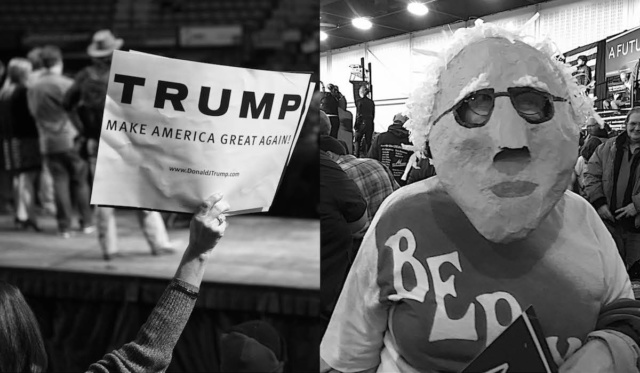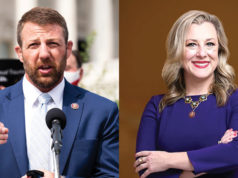LAUSANNE, Switzerland — “Donald Trump is smart and honest and fair and I believe he should be given a chance to bring our country back even better than it has ever been.”
“Donald Trump is a good man and I just pray that enough people realize it so that he wins the presidency.”
“I promise it will be worth your time to hear what he has to say.”
These are the kind of phrases being passed around online where I roll my eyes, sigh deeply and pray for the future offspring of the authors. They are the ramblings I expect to see from people I don’t know — anonymous Republicans that I can shake my head at and move on, knowing I have no chance of converting their views because we have no personal connection.
But this time, the phrases are coming from someone I love — someone who has been a big part of my life for many years.
What on earth do I do now?
I certainly cannot align myself with someone who so strongly believes that Trump is a good candidate to lead the United States, but I also do not desire to break ties completely with such a close family friend. The rational third option of engaging in conversation to understand exactly why it is that an otherwise reasonable person thinks Trump is the solution, I must admit I have little desire to attempt.
An election often means an argument
I often get asked if Americans care about politics, and I have to explain that talking politics can lead to arguments, fist fights and family disownment. Non-Americans are shocked at the level to which our political beliefs influence our lives and that it can create such big problems when families or friends divide across political lines. (Of course, this is not a uniquely American problem.)
In Europe, the major political parties are more closely aligned with each other (and lean more left overall than the U.S.) so their “left” and “right” are more accurately described as variations of “center”, which would be great to use as a comparison except that the U.S. has no center party. Despite the paltry efforts of third party candidates, we know for sure that the winner of the general election will answer to the name Republican or Democrat, on platforms wildly different from each other.
However, Europe itself seems to be undergoing a rebalancing of its political parties, including a rise in the voice of the far right (think Marine Le Pen’s party in France), although an increase in total votes has not yet led to an increase in parliamentary seats. During the last year, the traditional center-right and center-left parties lost some of their power to smaller, grassroots liberal parties a la Bernie Sanders or the Green Party and to radical populist movements a la Donald Trump or the Tea Party, due to distrust of the political establishment. Disenfranchisement with the old-school political institutions is not limited to just the U.S. Neither is the hatred of Donald Trump.
Which brings me back to my current problem.
Are we willing to give up lifelong friendships because of a difference in ideological views? Have we really sunk that far? No, I refuse to believe it.
So, I wait impatiently for this election to be over, so we can all go back to being family again — albeit maybe in four or eight years’ time.






















